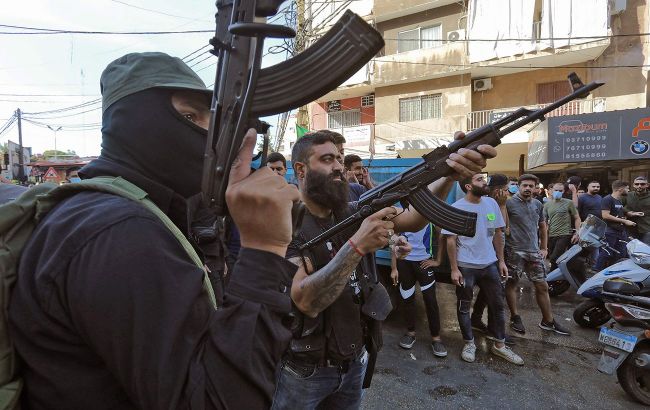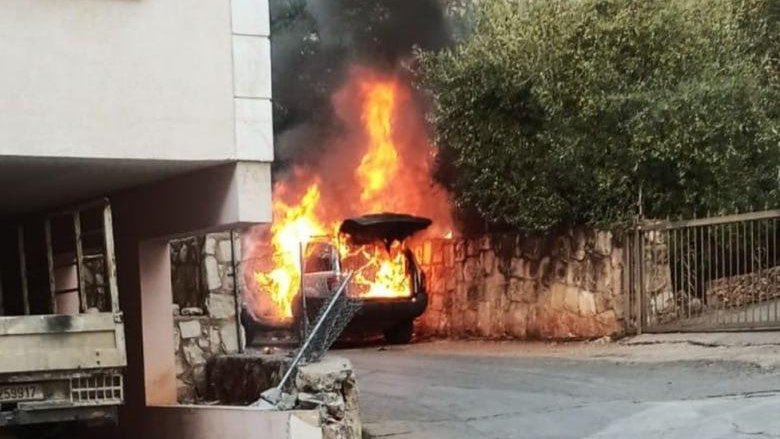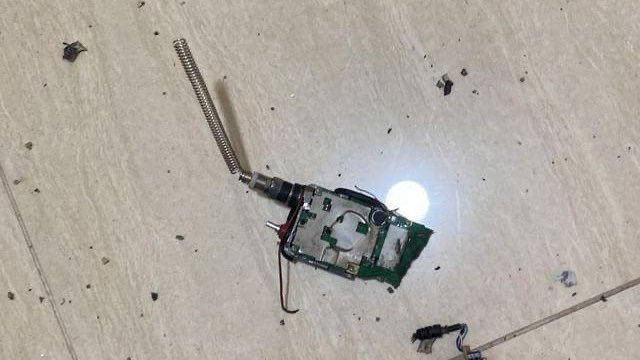Second wave of explosions in Lebanon: All details of attack on Hezbollah's communication devices
 Photo: Hezbollah militants (Getty Images)
Photo: Hezbollah militants (Getty Images)
Explosions have been echoing in Lebanon for the second day. After yesterday's detonation of pagers used by Hezbollah militants, the attack continued 24 hours later.
RBC-Ukraine has compiled everything currently known about the situation in Lebanon in the material below.
Contents
- Second day of explosions
- What is known about the pager explosions
- Who might be behind the attack on Hezbollah
- Threat of 'bloody revenge': Reaction to the explosions in Lebanon
Second day of explosions
In the afternoon of September 18, explosions were heard in several areas of Lebanon. The blasts were audible in Beirut, as well as in the southern and eastern parts of the country.
The Times of Israel reported that explosions occurred around 5:00 p.m., particularly in the Dahieh district of the capital, where the Hezbollah group is based.
At that time, a funeral for one of the militants, who died the previous day due to the mass detonation of pagers, was taking place.
Footage purportedly shows the moment a Hezbollah walkie-talkie exploded during a funeral in the Dahiyeh suburb of Beirut. https://t.co/3Qpkdgcjcy pic.twitter.com/BfzeeYykfL
— Emanuel (Mannie) Fabian (@manniefabian) September 18, 2024
Another video shows the walkie-talkie explosion at a funeral in Beirut. pic.twitter.com/EXMPIut0RU
— Emanuel (Mannie) Fabian (@manniefabian) September 18, 2024
According to a CNN source, between 15 and 20 explosions occurred in the suburbs of Beirut, with radios detonating this time. These communication devices are used less frequently than pagers and were distributed mainly to individuals organizing large gatherings, such as funerals and marches.
At the same time, reports spread on social media about the detonation of pagers, radios, mobile phones, laptops, radios, and other gadgets. Explosions also occurred in stores selling mobile phones, and cars and motorcycles caught fire.

Photo: Car after the explosion on September 18 (twitter.com/manniefabian)
The Lebanese Ministry of Health reported that 9 people were killed and over 300 were injured as a result of the incident.
What is known about the pager explosions
The new wave of explosions in Lebanon occurred less than 24 hours after the detonation of pagers used by Hezbollah militants for communication.
Around 2,800 people were injured, and at least 12 were killed. Among the victims were many Hezbollah fighters and the Iranian ambassador to Lebanon was also wounded. Hezbollah later confirmed the death of 8 of its fighters, while Lebanese media reported that a small child was also a victim of the attack.
Additionally, one Hezbollah representative, speaking anonymously, described the explosions in Lebanon on September 17 as "the biggest security failure" for the group since the beginning of the conflict between Israel and Hamas on October 7, 2023.
Who might be behind the attack on Hezbollah
Western sources, citing their own information, suggest that Israeli intelligence is behind the attack on Hezbollah's communication devices. However, Israel has publicly refrained from commenting on the situation and has not acknowledged involvement in the explosions.
The New York Times reported that Israeli intelligence agencies hid explosives inside a shipment of pagers ordered from the Taiwanese manufacturer Gold Apollo and intended for Hezbollah. The devices had a built-in switch for remote detonation. However, Gold Apollo stated that the pagers used in the attack were manufactured by a European distributor, BAC, in Hungary. Budapest, in turn, denies the presence of such production facilities in the country.

Photo: Radio after detonation (x.com/JasonMBrodsky)
According to CNN, this was a joint operation involving the Israeli military and the external intelligence service Mossad. Additionally, Israeli officials informed the US that the country was planning an operation in Lebanon but did not provide details about the planned attack.
Notably, the radios and pagers that exploded in Lebanon were purchased by Hezbollah nearly simultaneously five months ago, Reuters reports.
Threat of 'bloody revenge': Reaction to the explosions in Lebanon
Hezbollah has blamed Israel for the attacks, and the Lebanese government condemned the attack as "criminal Israeli aggression."
Hezbollah's Executive Council head, Hashem Safieddine, promised "bloody revenge" and announced that Hezbollah leader Sayyid Hassan Nasrallah would address the situation on September 19.
"Tomorrow, the leader of Hezbollah will speak and all will be revealed. And we will be in a new situation and a new confrontation with this enemy," he stated.
Additionally, on Wednesday evening, 20 rockets were launched from Lebanon towards Kiryat Shmona in Israel. Hezbollah claimed responsibility for the attack, asserting that the target was an Israeli military base. The Israel Defense Forces (IDF) managed to intercept some of the rockets, and no casualties were reported.
Meanwhile, Iran has condemned the attack on Hezbollah fighters and blames the "Zionist regime."
"The incident in Lebanon shows once again that Western countries and the United States, despite claiming to seek a ceasefire, fully support the crimes, massacres and blind terrorism of the Zionist regime in practice," said Iranian President Masoud Pezeshkian.
The terrorist organization Hamas also sides with Hezbollah. A spokesperson for the group, Izzat al-Risheq, stated that the Israeli government is responsible for the consequences of "this continuous attack on Lebanon."
In the context of the explosions in Lebanon, the UN General Assembly will convene for a meeting on September 20. Algeria, on behalf of the Arab countries, has requested this meeting.
Earlier today, UN Secretary-General António Guterres warned that the explosions targeting Hezbollah indicate a "serious risk of dramatic escalation in Lebanon, and everything must be done to avoid this escalation."
It should be noted that the terrorist organization Hezbollah is involved in the conflict that began in the Middle East with Hamas's attack on Israel on October 7, 2023. Hezbollah regularly fires on northern Israel. Meanwhile, Israel responds with the targeted elimination of group leaders and the destruction of rocket launchers.
Sources: materials from CNN, Reuters, The New York Times, and The Times of Israel.
More details on who is behind the pager explosions in Lebanon on September 17 and whether there will be a response from Hezbollah can be found in a separate report.
In a comment to the RBC-Ukraine YouTube channel, Israeli military analyst Yigal Levin stated that the goal of such an attack could be an attempt to create a climate of fear within Hezbollah.

